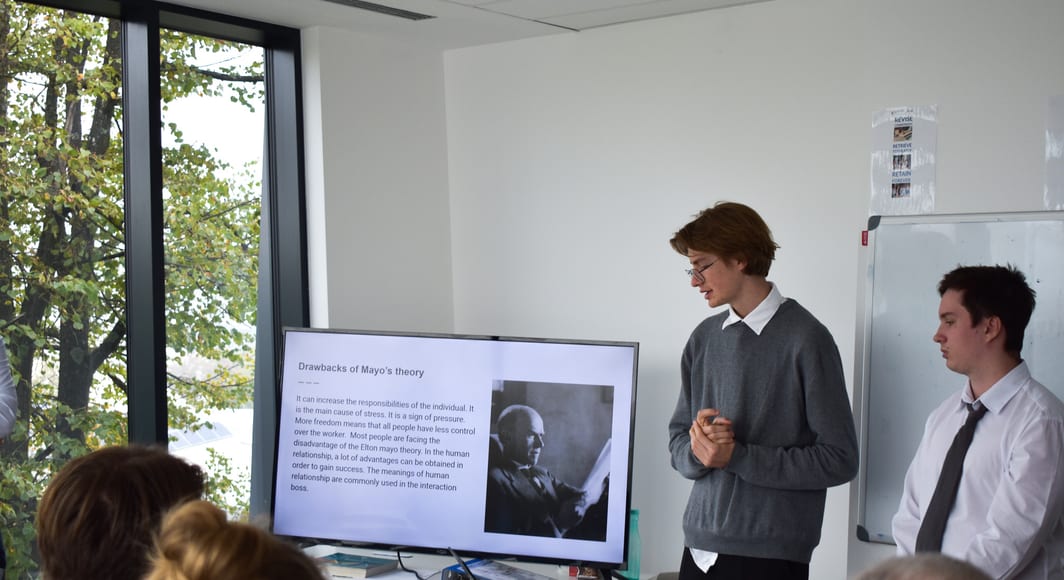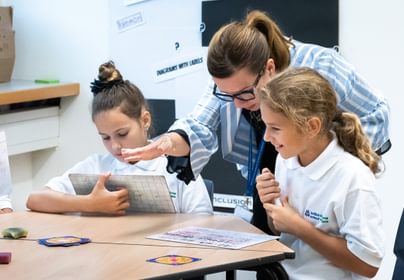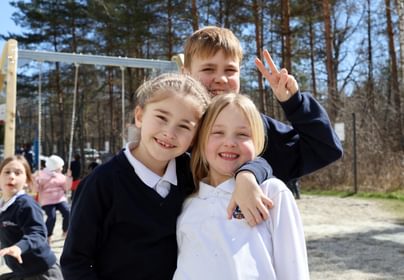A word from Mr Travis
Block 2 Week 2 Week 2 started with a ‘splash’ as all year groups headed to the Atlantis Water Park for their annual swimming day.
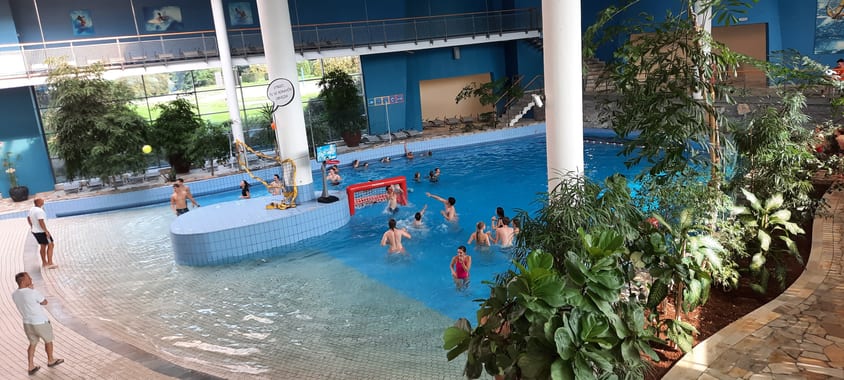
Expert instructors were on hand to guide the students with their technique and swim times. Feedback suggests that much fun was had by all! Thank you to Ms Fairchild and Mr Černi for organising the trips and to all staff who helped out on the day.
Year 9 Geography students were treated to an outing into central Ljubljana on Monday, to conduct research into the environmental impact of tourism. Students were surveying tourists directly, as well as conducting pedestrian counts and environmental quality surveys. The evidence they have gathered will be carefully analysed back in the classroom and conclusions reached.
Many thanks to Mr Astbury and Mr Bradley for organising the trip and escorting the students.
BISL teachers embarked on a new learning journey on Wednesday, with the launch of Professional Learning Communities (PLCs). The aim of the PLCs is to allow small groups of teachers to investigate new and exciting teaching pedagogies that serve to enhance student learning in the classroom. Teachers are required to conduct deep dives into specific areas of their practice, conduct further research and collaborate with their peers.
BISL is a learning community and it is not only the students that are learning! Our entrepreneurial IGCSE Enterprise students launched their new business initiatives on Friday at break time - highlights included a fully stocked BISL Bakery! I’m sure that put a smile on everybody’s face. These initiatives come from a carefully planned business proposal and the success of each project will be scrutinised back in class. Vital lessons for the future are being learnt!
Finally, we were delighted to welcome the UK Defence Attache to BISL on Friday, to deliver an assembly to our Y5-Y10 students. The Defence Attache presented about all aspects of Remembrance in Slovenia and around the world, including events that take place annually here and in the UK.
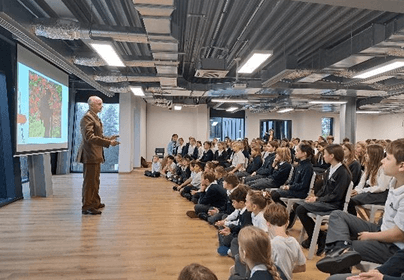
Sixth Form news
UKMT Senior Online Mathematics Challenge This week students took part in the UKMT Senior Online Mathematics Challenge. Members from year 13, 12 and 11 took part in the 90 minute challenge which tested the participants ability to draw upon all areas of their Mathematical knowledge and apply it in novel and interesting ways in order to solve complex problems. We wish them all the best for their results and hope to see more gold, silver and bronze awards such as the many we saw in last year's challenge.
Humanities Block The Humanities block continues with the Seterra Competition next week! Seterra is a browser-based game which tests your knowledge of country names and locations. There will be a knockout competition with the winner decided on Friday! Please sign up via the Google form shared to your by email or speak to Mr Bradley.
Business studies news Our Year 12 AS level Business students were presenting an analysis and evaluation of some of the most renowned employee motivation theories. Including those of Taylor, Maslow, Mayo, Herzberg, McClelland and Vroom. The students were tasked with independently researching two theories each, describing the main points of each theory, and commenting on the application and limitations of these in today's business environment.
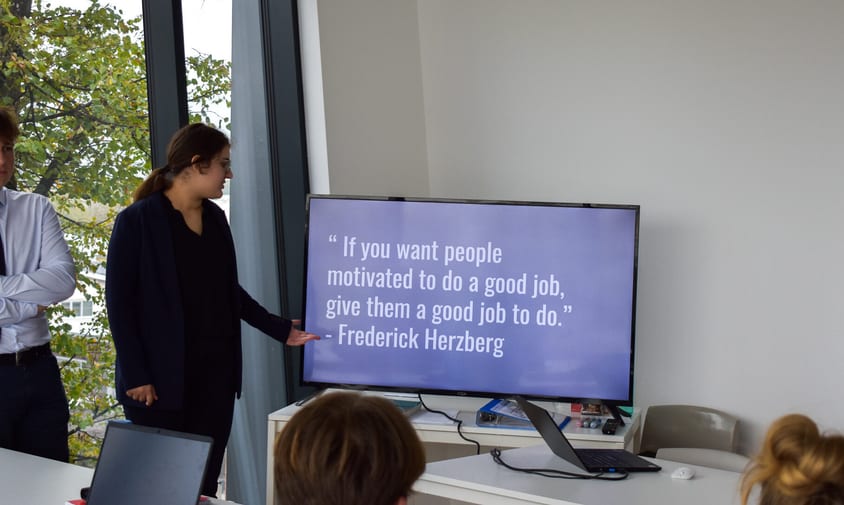
English News
Year 7 headed closer towards the gripping finale of Robert Swindell’s “Stone Cold,” while looking at ways the author uses language to make it more interesting to the reader.
Year 8 continued their study of “A Monster Calls” and looked at how to use inference to analyse character motivations. They came up with fantastic questions to interview each of the characters and then interviewed them to work out what drove them to be the person they are.
Year 9 looked at the pigs' continued rise to power in “Animal Farm”, and the way in which they gradually began to re-write history. As the students are coming to the end of the unit they have begun reflecting on how Animal Farm is written to reference contextual events outside the text.
Year 10 looked at the hopes, and dreams, and aspirations of each of the characters in Crumbs from the Table of Joy, and how ultimately the reality of the American dream is that no character will achieve their dreams - a somewhat sombre way to end a great week at school. They also performed segments of the play looking at the impact which Gerte has on the family, and it was wonderful to see them dramatise the play.
Year 11 continued their study of Purple Hibiscus, and began applying context to their understanding of Adiche's presentation of religion in the novel. In particular, the class engaged with the hypocrisy of the father in the novel, who presents himself to the outside as a perfect Christian yet is awful to his family - it is safe to say that the entire class is utterly against the tyranny of Papa Eugene
PE News
Week 5
This week we introduced a competitive element to lessons, as well as introducing some new sporting themes. Year 7 continued to develop their technical and tactical understanding of tennis, whilst Year 8 took part in some badminton doubles match play. Year 9 explored some of the more tactical elements of singles and doubles when playing tennis and badminton, with Year 10 and 11 developing their volleyball match play skills.
Mr Hayes, PE Department
Maths News
Year 9 students recalled all four operations with decimals and were determined to perfect their techniques. It was amazing to see students' different approaches to multiplication and division. As long as the techniques are performed correctly, the students are welcome to use whichever they are most comfortable with.
Year 10 students solved problems involving money and finances as a part of preparations for their upcoming quiz next week. They focused on simple and compound interest, profit and loss, and currency conversions.
Year 11 students learnt how to factorise quadratic and other expressions, rearrange more complex formulae involving squares and square roots and work with algebraic fractions. They had a variety of differentiated worksheets to choose from to suit all students' needs.
Year 13 students wrapped up the chapter of trigonometry by learning the R-alpa method, which is used to solve more complicated trigonometric equations. They already started preparing for their upcoming quiz by solving examination-style questions.
Maths challenge wall: Well done again to Years 7 and 8 solving problems on the Maths challenge wall in front of room 316. Do not forget to share your answers with your Maths teacher and earn House points! Stay tuned for the new challenge posted next week. Ms Zupanc, Maths Department
MFL News:Slovene Foundation
Y8's had a productive week. They are well into the book “Uganka londonskega očesa” by Siobhan Dowd. It tells the story of how Ted, a boy with Asperger’s syndrome, and his sister Kat, solve the mystery of how their cousin, Salim, seemingly vanishes from inside a sealed capsule on the London Eye. How did he disappear? Well, you will have to ask Y8's. Ms Kotnik, MFL Coordinator In Y8 Slovene Intermediate we have been traveling to different places this week. Students discussed the ideas “where do they travel?”, “what transport do they use?”, “who do they travel with?”, “what do they take on a trip?” They also talked about their favourite holiday destinations and learned about natural and cultural sights. Ms Jakop, Slovene teacher
Student Article - Science Introduction Hello, my name is Anže, I am a student currently studying in Year 13.
I have a great personal interest in science and engineering and would like to share that passion with others by spreading awareness about the major breakthroughs and technological advancements, every week in the school newsletter Scientists have created a lab-grown ‘brain’thatis able to play Pong This week a new study was published in the scientific journal Neurone, where scientists have demonstrated research showing that it is possible to teach lab grown brain cells to play the simple video game, Pong. While ‘Mini-brains’ like this one have been used for research since 2013, this is the first time that they have been connected to and been able to interact with an external environment.
This is a major breakthrough as it shows that the cluster of brain cells is able to accept and respond to external stimuli, as well as adapting to it. The mini-brain was able to learn to play Pong in 5 minutes, and after 20 minutes of playing, it had shown noticeable improvement. While it was not as good as an AI program or even you are I, the results showed that its ability to hit the ball with the paddle was not just random chance.
Now you may wonder: The brain can't hold a controller, so how does this actually work? Well DishBrain, as it is called by the Australian start up who developed it, is made up of mouse cells, taken from embryos, and human cells, taken from stem cells. This culture is on top of a chip made up of multiple electrodes. The electrodes use electric signals to indicate the position of the ball to the mini-brain, which would respond with its own electrical impulses that move the paddles. If the paddle hit the ball the cells would receive a strong feedback signal, while if it missed a weaker random signal would be sent. Using these response signals the brain was able to adapt over time and improve. The scientists at Cortical Labs, who developed DishBrain, see it as a new method of computing and AI, which could in the future be more efficient than using computers and code for AI, as neurons are much more energy efficient.
In the near future mini-brains can be used to discover more about the brain as well as neurodegenerative diseases, but they also bring up many ethical issues. What happens if one day a sentient and self conscious brain is created?

